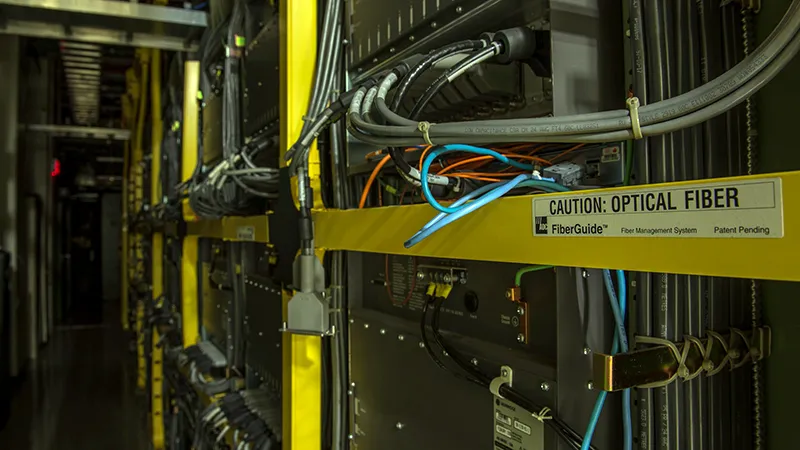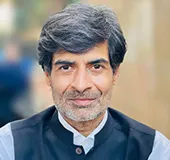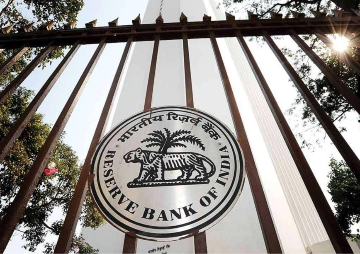The joint communique from the recently concluded Russia–India–China (RIC) Foreign Ministers meeting in Moscow, as it relates to internet governance, reflects the unique role New Delhi plays within BRICS. The operative paragraph of the Moscow communique reads:
The Ministers advocate a peaceful, open and secure Internet space. Considering the Internet a global resource, they are convinced that all states should participate in its evolution and functioning on an equal footing. In particular, the Ministers underlined the primary role of the States in promoting security, stability, and economic cooperation in the use of ICTs. The Ministers emphasised the need to ensure Internet governance based on multilateralism, democracy, transparency with multi–stakeholders in their respective roles and responsibilities.
The reference to “multi–stakeholder” internet governance in the communique is significant for two reasons and possibly unprecedented. First, the suggestion to include this came from India, which in 2015 unequivocally endorsed ‘multi–stakeholderism’. Chinese and Russian interlocutors — plainly aware that India’s multistakeholder line is uniform and has no BRICS variant — agreed to this inclusion, reflecting India’s ability to inject a “Western” norm in a decidedly different setting. Second, the RIC communique was drafted in Moscow, with Russia holding the pen. Russian Foreign Minister Sergei Lavrov is one of the sharpest minds in the business, and Moscow and Beijing agreeing to India’s input on “multi–stakeholder” governance indicates that New Delhi is no longer a pushover at the joint meetings.
That said, give–and–takes are part of multilateral diplomacy. The Moscow communique also emphasises the “need to internationalize Internet governance and to enhance in this regard the role of International Telecommunication Union.” The role of the International Telecommunication Union (ITU) in Internet governance is contested, given that it is an inter–governmental platform. Its inclusion in the document is a concession from the Indian side, but also an acknowledgement of the role that states play in addressing security related concerns in cyberspace. The BRICS declaration signed at Ufa last year tipped its hat to the UN’s “facilitating role” in Internet policy making. The Moscow communique arguably goes a step further with its pointed reference to the ITU. New Delhi is actively engaged both at the ITU and in multi–stakeholder venues like the Internet Corporation for Assigned Names and Numbers (ICANN), so the communique does not change any negotiating stance. Information Technology Minister Ravi Shankar Prasad’s call at ICANN 53 in Buenos Aires for “multi-stakeholder, multi-layered” Internet governance still animates the Indian line.
The larger lesson here is India’s ability to carry its own distinct preferences with the RIC group, which is at the core of BRICS. Consider the international context: China, under President Xi Jinping’s leadership, has supported a state-led “duobian” (multilateral) model of Internet governance. Russia has unwaveringly opposed multi–stakeholderism and it would be remiss to forget the larger, Cold War-levels of antagonism between Moscow and Washington, DC today.
The Moscow communique on Internet governance, therefore, is testament to India’s role as the bridge between the liberal international regime and its counter–construct. New Delhi has engaged agnostically with multilateral and plurilateral forums, allowing for its own global orientation to be independent of bigger and dominant players. The RIC meeting suggested it can not only absorb norms but also transmit them, while conditioning their application to the context at hand. Therein lies the value of BRICS for India. The group, especially in light of the political and economic challenges that many of its members face, has long invited criticism for being a talk shop or a forum for solidarity. But it is patently in India’s interests to support a bloc that presents a formidable political challenge to the global order. For one, it helps New Delhi — whose own strategic interests are clear — to influence evolving norms at BRICS. If G20 meetings under the presidency of China this year lead to a confrontation between the great powers — there are many indicators that it may — there are few countries better positioned than India to act as an honest interlocutor. Conversely, its diplomatic “legroom” to manoeuvre multilateral rights–based forums is a strategic lever that India must deploy to assist neighbours and partners like Maldives and Sri Lanka.
Inhabiting these two political universes is not an easy task and the Indian establishment must consider its autonomy before making diplomatic moves, be it with the US, Russia or China. “Alignment” with norms, ideologies or regimes is first and foremost a political act — South Block has realised it is time to harvest them for strategic consequences. Just as India seeks to move political outcomes in its direction, its actions will attract a greater degree of visibility and criticism, for which New Delhi should be diplomatically prepared.
This commentary originally appeared in The Wire.
The views expressed above belong to the author(s). ORF research and analyses now available on Telegram! Click here to access our curated content — blogs, longforms and interviews.




 PREV
PREV



